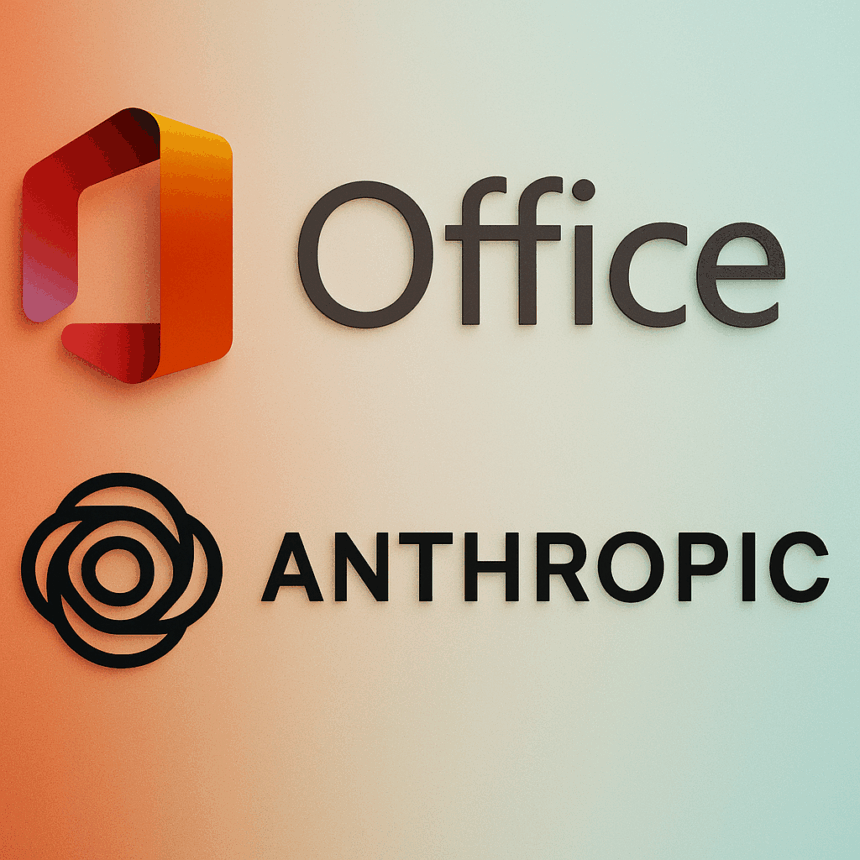Microsoft is improving its artificial intelligence offerings by adding Anthropic’s Claude Sonnet 4 model to Office 365. This ends its exclusive reliance on OpenAI for generative AI capabilities. This move opens a new chapter in the race for dominance in workplace AI tools. It reshapes how millions of users interact with Word, Excel, PowerPoint, and Outlook.
What’s Happening & Why This Matters
For years, Microsoft has banked on its multibillion-dollar partnership with OpenAI. The company has integrated its models into Copilot and rolled out features across its software suite. According to The Information, internal testing revealed that Anthropic’s Claude Sonnet 4 outperformed OpenAI’s models in specific areas such as visual design and spreadsheet automation.
Sources close to the project stressed that this decision is about performance, not negotiation tactics. A Microsoft spokesperson emphasized to Reuters that the company remains committed to its partnership with OpenAI. Yet, it brings Anthropic into the mix:
“As we’ve said, OpenAI will continue to be our partner on frontier models and we remain committed to our long-term partnership.”
A Unique Arrangement with AWS
In a twist highlighting the complex relationships in the AI industry, Microsoft will access Anthropic’s technology through Amazon Web Services (AWS). This is noteworthy because AWS competes directly with Microsoft’s Azure cloud platform. It is also a major investor in Anthropic. Despite this competitive overlap, Microsoft is expected to announce the integration within weeks. There will be no changes to subscription pricing for Office users.
Why Microsoft Is Expanding Beyond OpenAI
Microsoft’s relationship with OpenAI dates back to 2019 and includes over $13 billion in investments. The partnership gave Microsoft an early lead in generative AI. It enabled the rapid—though sometimes rocky—deployment of AI features in Bing search and Copilot assistants.
However, recent findings indicate there’s room for improvement. A UK government report found no measurable productivity boost among workers using Copilot AI in daily tasks. This underscores the need for more specialized, high-performing models like those from Anthropic to fill performance gaps.
By diversifying its AI portfolio, Microsoft is hedging its bets. It seeks to deliver more effective solutions to its enterprise customers. This strategy also adds competitive pressure on OpenAI, which remains at the heart of Microsoft’s frontier model development.
TF Summary: What’s Next
The integration of Anthropic’s Claude Sonnet 4 into Office 365 marks a major milestone in the AI race. It signals Microsoft’s intent to push beyond its long-standing OpenAI exclusivity. Users can expect more refined and specialized AI features, especially in visual design and data-heavy applications like Excel.
As competition heats up between OpenAI, Anthropic, and other AI developers, this move positions Microsoft to deliver a more versatile suite of tools. It maintains flexibility in an increasingly crowded marketplace. For enterprise users, the result could be smarter, faster, and more customizable AI-driven workflows.
— Text-to-Speech (TTS) provided by gspeech


